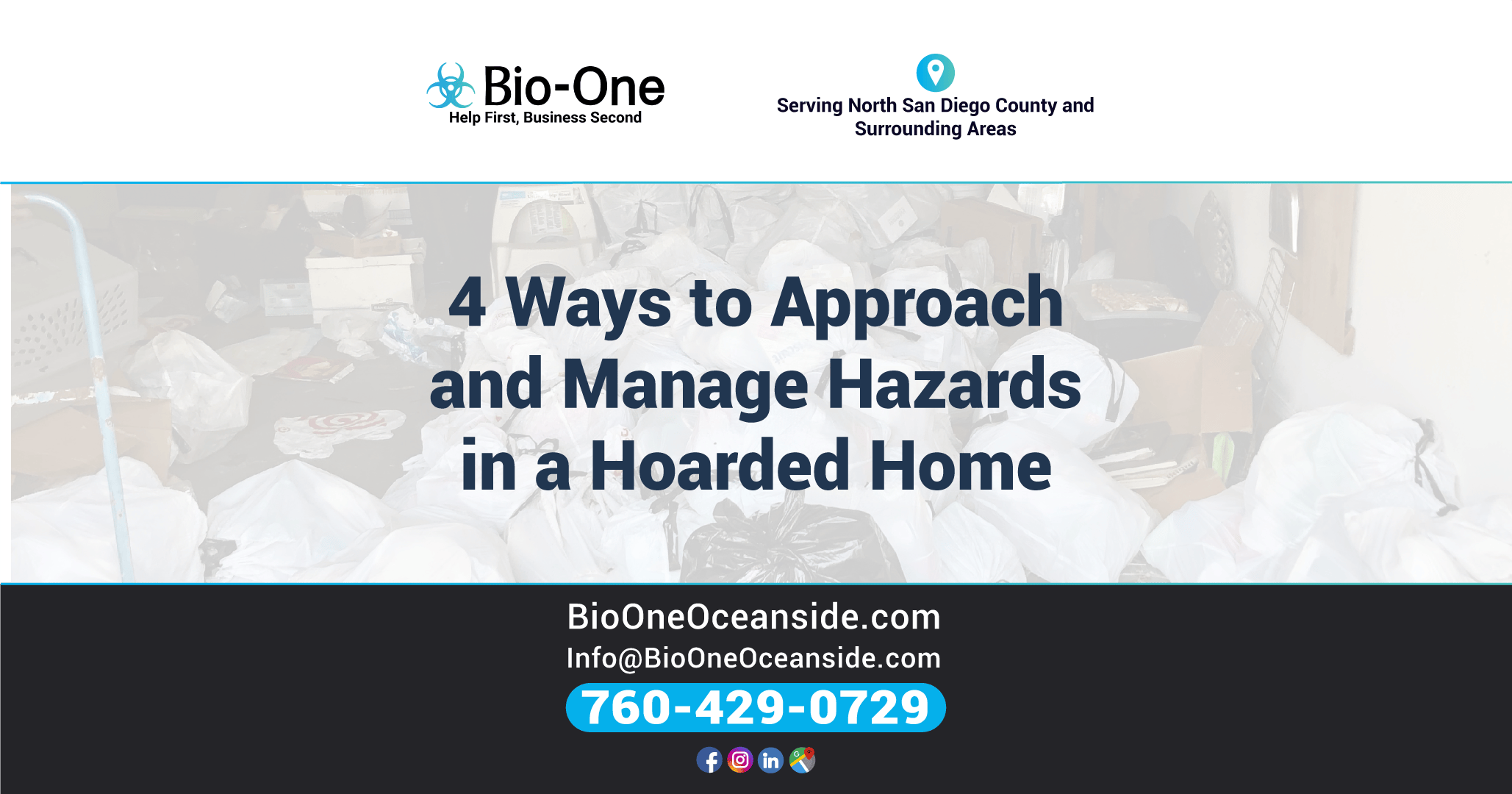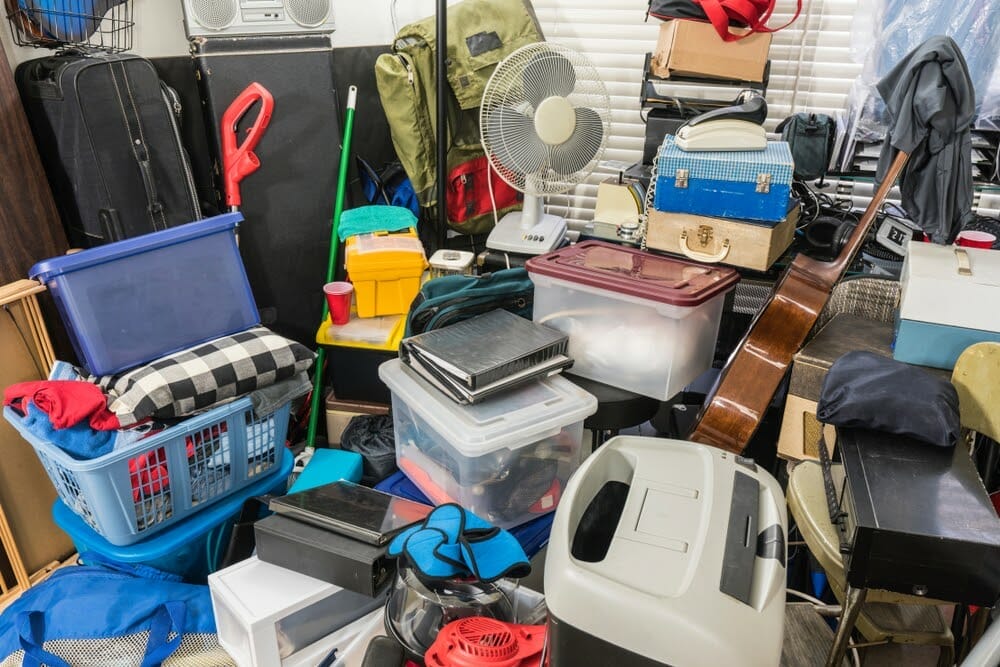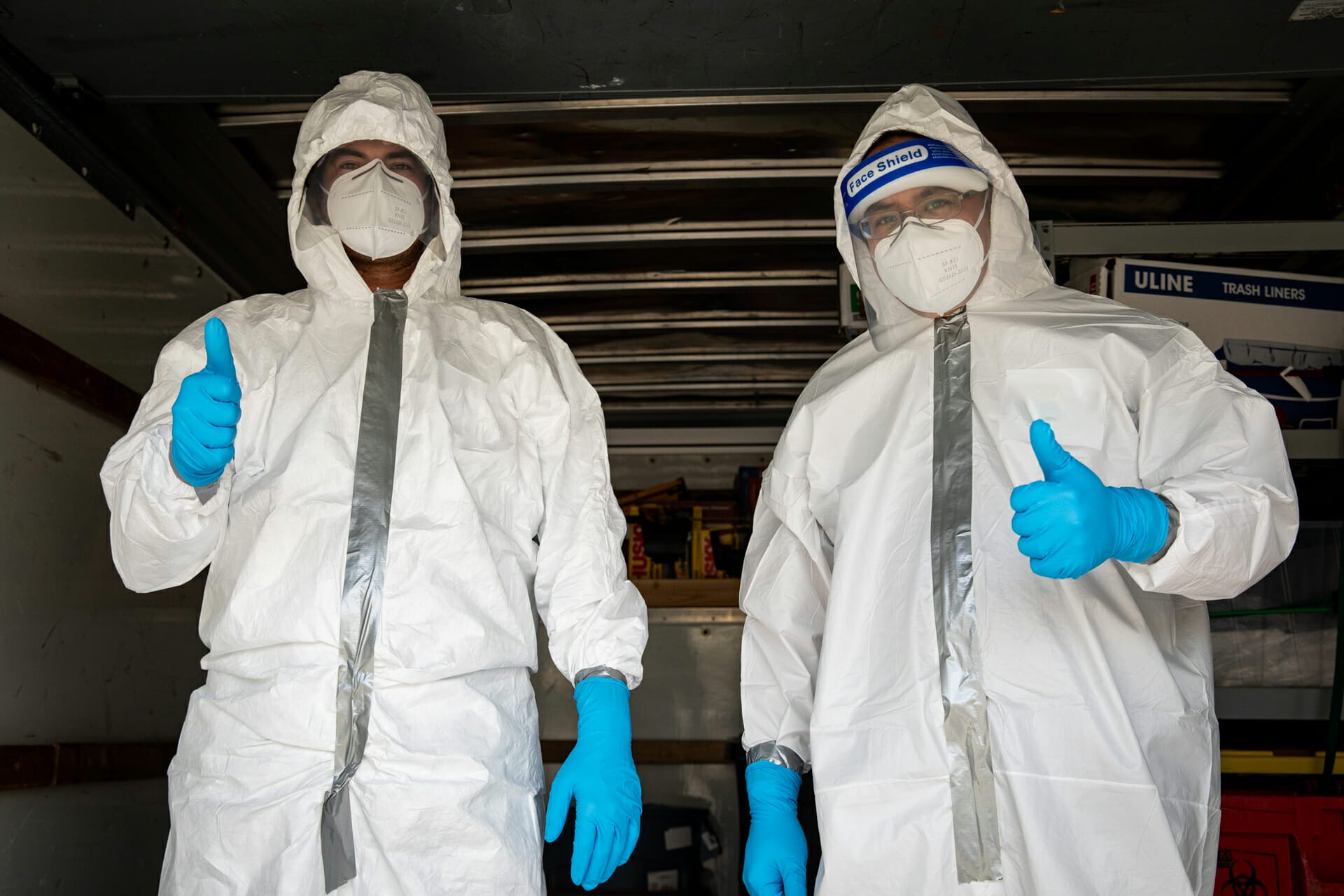
Hoarding disorder is a condition characterized by an excessive accumulation of possessions due to the inability to discard items. Hoarding can cause physical, social, and psychological difficulties for both the hoarder and their family members or caregivers. Managing the hazards in a hoarded home can be difficult. If you or someone you know is struggling with hoarding and hazardous living conditions, there are ways to address the situation.
In this blog post, we will take a closer look at four ways to address hazards in a hoarded home. At Bio-One of Oceanside, we understand the sensitive nature of hoarding and are here to offer our support and guidance.
Hazards such as mold, animal waste, and sharp objects can pose a serious risk to anyone involved in the cleanup process. The proper safety equipment and precautions must be taken before any cleanup begins. Having professionals handle these hazardous materials is recommended, as they have the training, equipment, and experience to do so safely.
Communication between the individual, family members, or caregivers and their support network should be established as soon as possible to begin addressing the problem at hand. Work together with mental health professionals to create an action plan outlining steps towards obtaining help for the hoarder and restoring safety in the home.
Before any cleanup begins, a plan should be created to ensure that the process is organized and efficient. This includes identifying the areas that need to be cleaned, creating a timeline, and determining what items will be kept, donated, or disposed of. It’s important to involve the hoarder in this process, to ensure their comfort and to mitigate feelings of loss or anxiety.

Hoarding is a complex disorder that is often linked to underlying emotional issues. To effectively manage hazards in a hoarded home, it’s important to address the emotions and psychological factors contributing to the hoarding behavior. The hoarder should receive mental health support and counseling to work through the emotional challenges associated with their hoarding.
Look into organizations, support groups, or other resources in the community that can provide additional help and guidance. These may include local government agencies, community organizations, or specialized services like Bio-One of Oceanside, as we specialize in hoarding clean up and disposal.
Finally, it’s important to follow up with your loved one. Make sure that the home is free of clutter and hazardous conditions. It’s also important to keep in touch and offer regular support. Check-in periodically to make sure that progress is being made and that their mental health needs are being met. Doing this can help ensure a successful outcome for your loved one!
Managing hazardous conditions in a hoarded home can be a complex and emotional process. The key to effective management is to prioritize safety, create a plan, address the underlying emotions, and provide ongoing support. Hire professionals to handle hazardous materials and involve the hoarder in the process to mitigate feelings of loss or anxiety.

At Bio-One of Oceanside, we understand the sensitive nature of hoarding and are here to offer our support and guidance. Contact us today to find out how we can help!